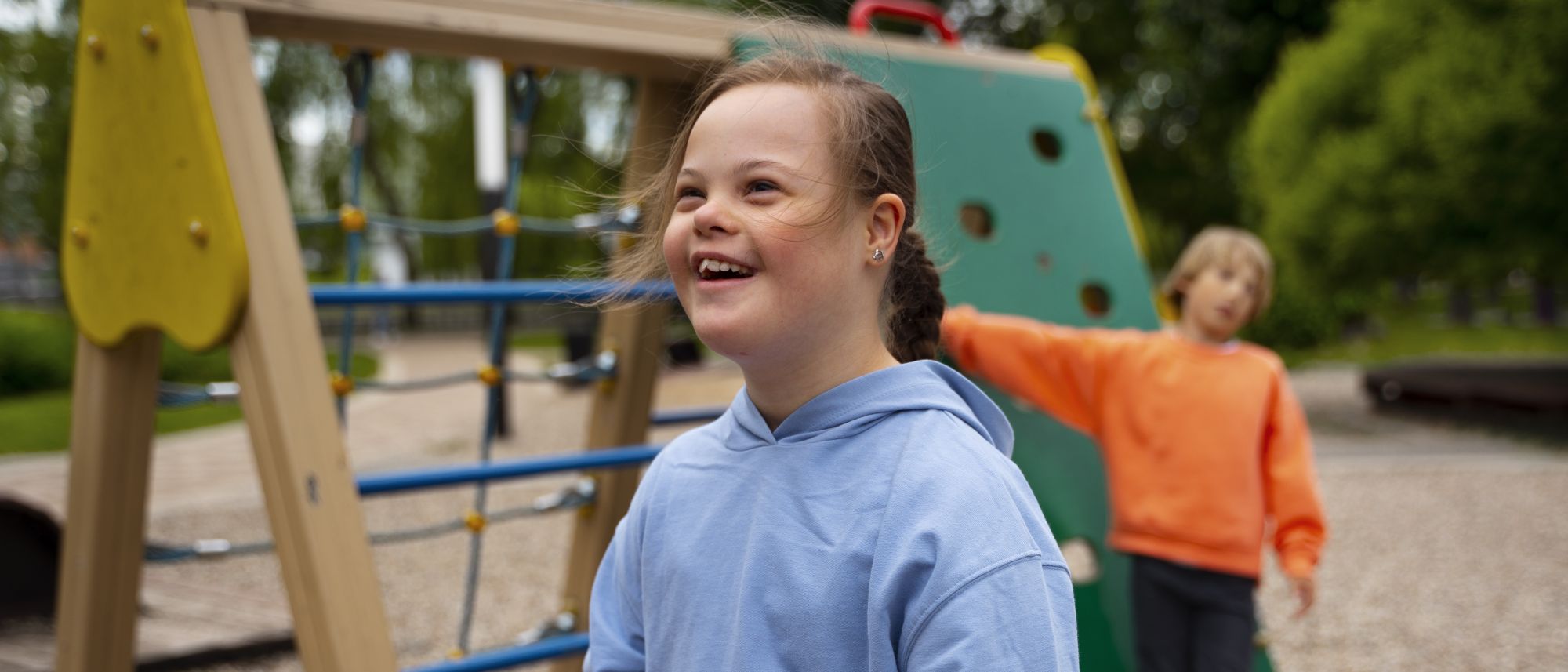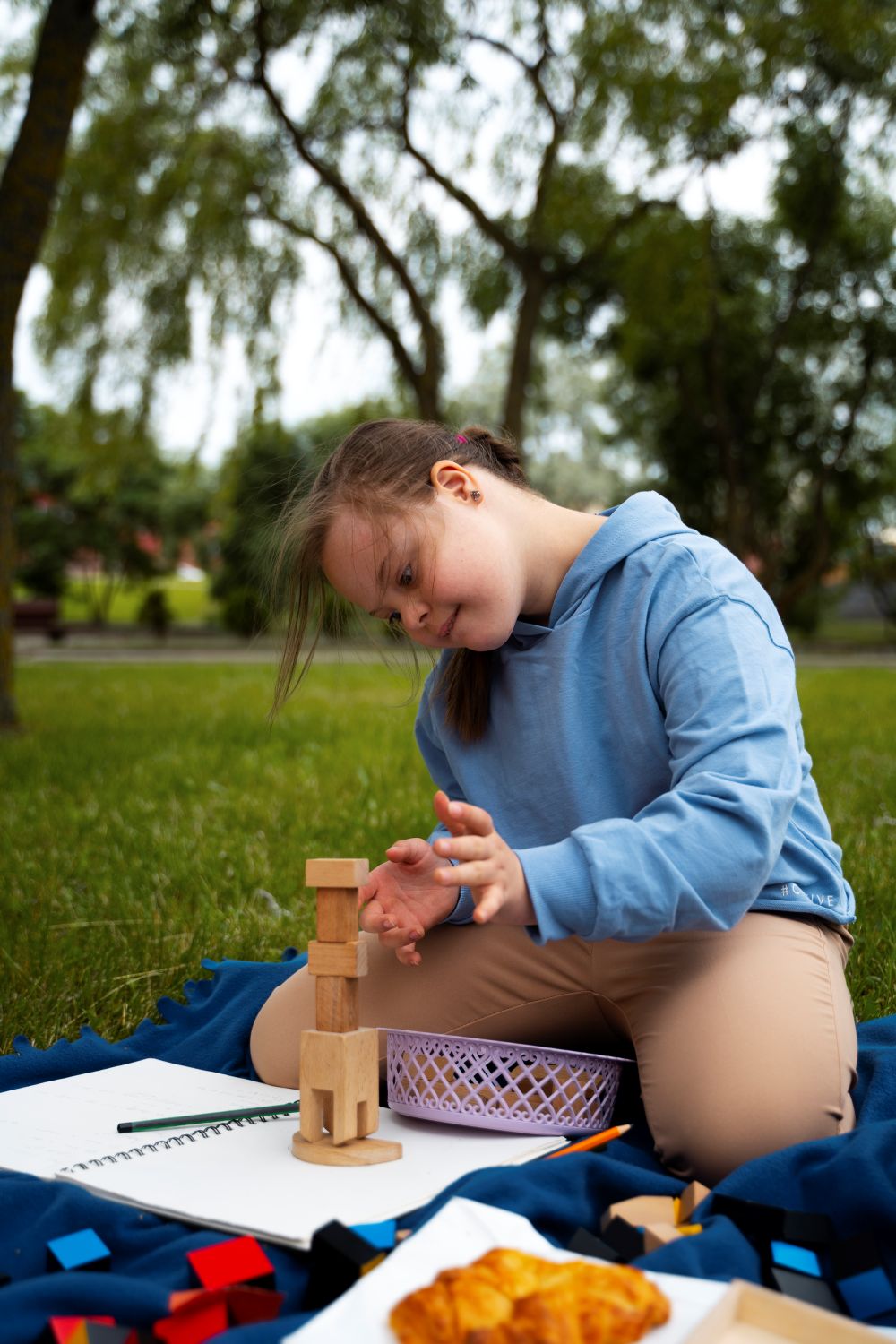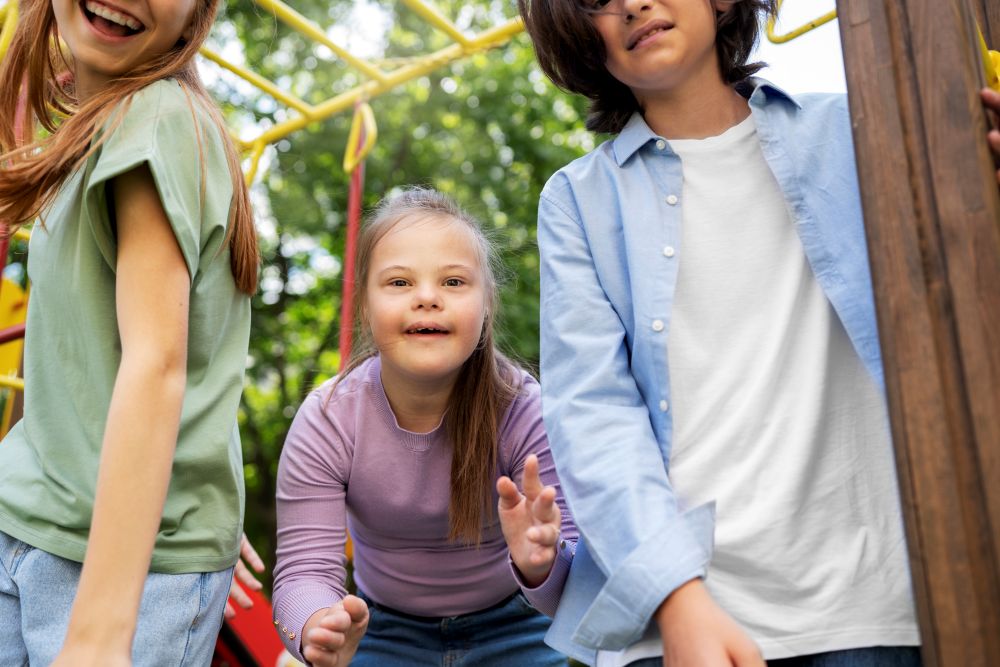Neurodivergent Minds, Open Spaces:
The Power of Outdoor Play for
Every Child
Every child is beautifully unique and that’s especially true for neurodivergent children. Whether a child is autistic, has ADHD, sensory processing differences, or another neurodevelopmental profile, the way they engage with the world is wonderfully individual.
Outdoor play can be one of the most effective and joyful tools to support neurodivergent children offering freedom, movement, sensory exploration, and the chance to play in a way that feels right for them.
Here’s how families can use outdoor environments to nurture confidence, regulate emotions, and spark creativity one play session at a time.

April 30, 2025
Share:
Nature provides a unique kind of comfort. Unlike many indoor settings, outdoor environments tend to be less stimulating and more predictable. The gentle sound of birds, the rustling of leaves, and the openness of fresh air can all help to reduce anxiety and support emotional regulation. For many children, time in a garden or park brings a sense of calm that’s difficult to find elsewhere. These soothing sensory experiences create a peaceful backdrop that allows children to reset, recharge, and feel more in control.
Outdoor play also supports a wide range of physical and sensory needs. Neurodivergent children often seek out specific types of movement that help regulate their nervous systems. Activities like jumping, climbing, spinning, or rocking aren’t just fun, they can be essential for focus, calm, and emotional stability. A trampoline, for example, provides rhythmic motion and deep pressure that many children find grounding. Climbing frames offer full-body movement and sensory input that helps children develop spatial awareness, coordination, and strength. For children who enjoy movement but may struggle with unpredictable surroundings, cargo bikes offer a secure,
For neurodivergent children, the world can often feel overwhelming. From loud environments to fast-paced routines, everyday settings can present a wide range of sensory and social challenges. Yet one thing remains beautifully universal: the importance of play. For children with autism, ADHD, sensory processing differences, or other neurodevelopmental profiles, outdoor play offers something truly special — freedom, calm, and the chance to explore and express themselves in their own way.
Nature provides a unique kind of comfort. Unlike many indoor settings, outdoor environments tend to be less stimulating and more predictable. The gentle sound of birds, the rustling of leaves, and the openness of fresh air can all help to reduce anxiety and support emotional regulation. For many children, time in a garden or park brings a sense of calm that’s difficult to find elsewhere. These soothing sensory experiences create a peaceful backdrop that allows children to reset, recharge, and feel more in control.
Outdoor play also supports a wide range of physical and sensory needs. Neurodivergent children often seek out specific types of movement that help regulate their nervous systems. Activities like jumping, climbing, spinning, or rocking aren’t just fun — they can be essential for focus, calm, and emotional stability. A trampoline, for example, provides rhythmic motion and deep pressure that many children find grounding. Climbing frames offer full-body movement and sensory input that helps children develop spatial awareness, coordination, and strength. For children who enjoy movement but may struggle with unpredictable surroundings, cargo bikes offer a secure, enclosed way to explore new environments while staying close to family.
One of the most valuable aspects of outdoor play is the freedom it offers. Many neurodivergent children thrive in unstructured environments where they can play at their own pace, follow their interests, and take breaks when needed. Gardens and parks allow children to make choices, try new things without pressure, and return to comforting activities as often as they like. A playhouse can serve as both a retreat and a launching pad for imaginative play, while a backyard climbing frame might become a spaceship, a castle, or a quiet spot for solo exploration. When play is open-ended and child-led, it builds autonomy and self-confidence in ways that structured activities often can’t.
Creating an outdoor space that supports neurodivergent children doesn’t require major renovations. It starts with thoughtful choices that prioritise comfort, safety, and sensory support. Using natural materials like wood in playhouses or climbing frames can reduce overstimulation and make the environment feel more grounded. Including shaded areas, quiet corners, and soft surfaces provides safe spaces for rest and regulation. Adding elements like grass, bark, water, or sand can encourage rich sensory play, while keeping the overall layout simple and predictable can help children feel secure. Ultimately, the goal is to create an environment where your child feels accepted, understood, and free to be themselves.
Outdoor play also has the power to strengthen family bonds. Shared time outside — whether bouncing together on a trampoline, going for a bike ride, or building something in the garden — provides natural opportunities for connection without the pressures of structured conversation or social expectations. These moments allow parents to meet their children in a space that feels comfortable and joyful, and to celebrate small wins along the way. Whether it’s climbing a little higher, staying outside a little longer, or inventing a brand-new game, these achievements matter — and they’re made even more meaningful when experienced together.
At Outdoor Fun Toys, we believe that play should be inclusive and accessible to every child. Our curated collection of trampolines, climbing frames, playhouses, and family cargo bikes is designed with safety, longevity, and sensory experience in mind. We understand that no two children are alike, which is why we offer products that support a variety of developmental needs and encourage child-led, screen-free fun.
Supporting a neurodivergent child doesn’t require perfection — it simply requires presence, patience, and spaces that honour who they are. Outdoor play isn’t a one-size-fits-all solution, but it can be a powerful starting point. With a little creativity and a lot of love, gardens and parks can become safe havens — places where children feel free to move, explore, and grow at their own pace.
Every child deserves space to thrive — and for many, that space begins just beyond the back door.
enclosed way to explore new environments while staying close to family.
One of the most valuable aspects of outdoor play is the freedom it offers. Many neurodivergent children thrive in unstructured environments where they can play at their own pace, follow their interests, and take breaks when needed. Gardens and parks allow children to make choices, try new things without pressure, and return to comforting activities as often as they like. A playhouse can serve as both a retreat and a launching pad for imaginative play, while a backyard climbing frame might become a spaceship, a castle, or a quiet spot for solo exploration. When play is open-ended and child-led, it builds autonomy and self-confidence in ways that structured activities often can’t.
Creating an outdoor space that supports neurodivergent children doesn’t require major renovations. It starts with thoughtful choices that prioritise comfort, safety, and sensory support. Using natural materials like wood in playhouses or climbing frames can reduce overstimulation and make the
environment feel more grounded. Including shaded areas, quiet corners, and soft surfaces provides safe spaces for rest and regulation. Adding elements like grass, bark, water, or sand can encourage rich sensory play, while keeping the overall layout simple and predictable can help children feel secure. Ultimately, the goal is to create an environment where your child feels accepted, understood, and free to be themselves.
Outdoor play also has the power to strengthen family bonds. Shared time outside, whether bouncing together on a trampoline, going for a bike ride, or building something in the garden, provides natural opportunities for connection without the pressures of structured conversation or social expectations. These moments allow parents to meet their children in a space that feels comfortable and joyful, and to celebrate small wins along the way. Whether it’s climbing a little higher, staying outside a little longer, or inventing a brand-new game, these achievements matter, and they become even more meaningful when experienced together.
Supporting a neurodivergent child doesn’t mean striving for perfection; it’s about being present, patient, and creating spaces that truly honour who they are. Outdoor play may not look the same for every child, but it can be a wonderful starting point. With a touch of creativity and plenty of love, gardens and parks can become safe havens where children feel free to move, explore, and grow at their own pace.
Every child deserves the chance to flourish, and for many, that journey begins just a few steps beyond the back door.
- Outdoor Fun Toys


